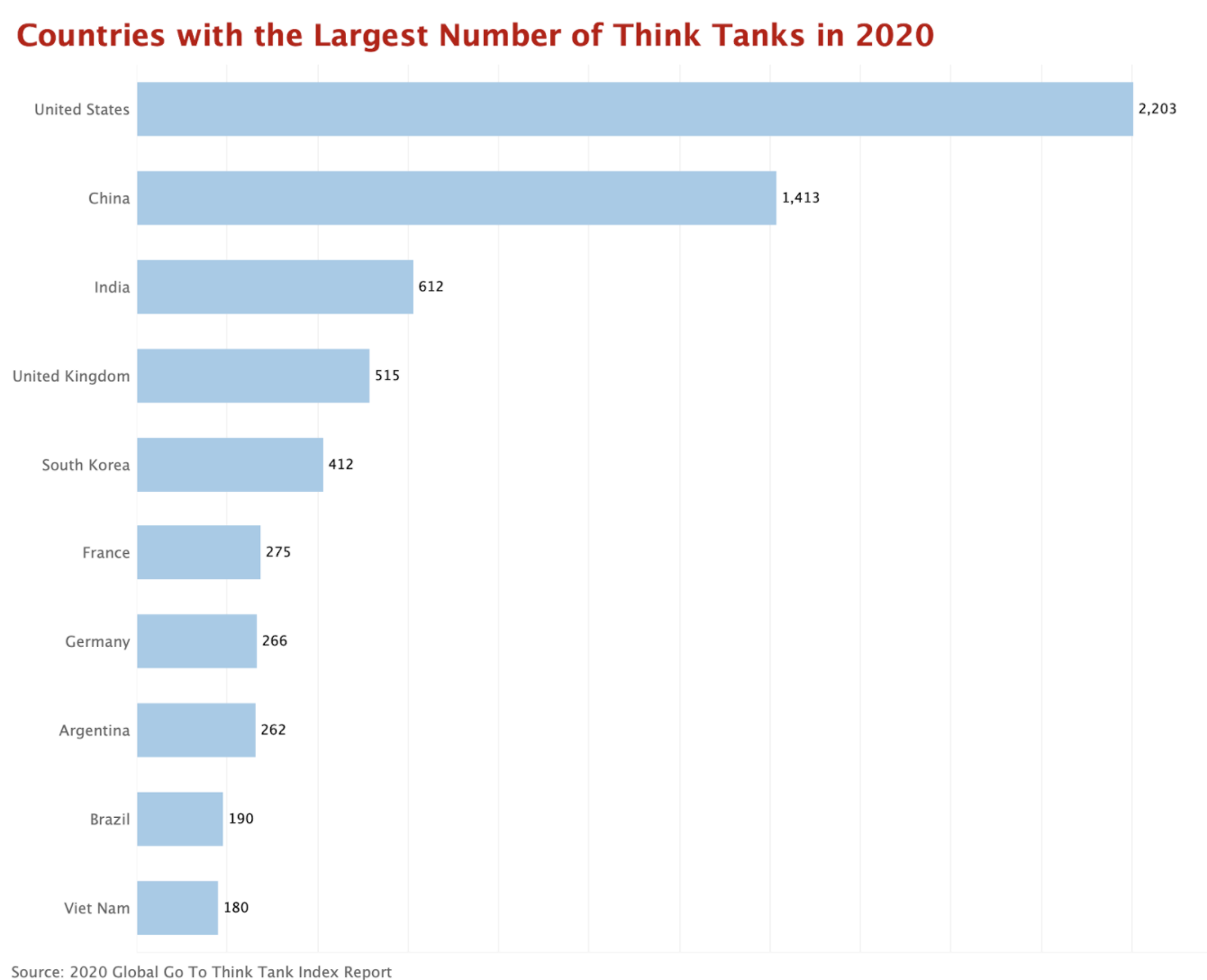Global Go To Think Tank Index Reports
* Click here to access the 2020 Global Go To Think Tank Index Report *
DEFINING AND EVALUATING THINK TANKS
Think tanks are public policy research, analysis, and engagement organizations. They are organizations that generate policy-oriented research, analysis, and advice on domestic and international issues that enable policymakers and the public to make informed decisions about public policy issues. Think tanks may be affiliated with political parties, governments, interest groups, or private corporations or constituted as independent nongovernmental organizations (NGOs). These institutions often act as a bridge between the academic and policymaking communities, serving the public interest as an independent voice that translates applied and basic research into a language and form that is understandable, reliable, and accessible for policymakers and the public. Read more about how TTCSP ranks think tanks.
Structured as permanent bodies, in contrast with ad hoc commissions or research panels, think tanks devote a substantial portion of their financial and human resources to commissioning and publishing research and policy analysis in the social sciences: political science, economics, public administration, and international affairs. The major outputs of these organizations are books, monographs, reports, policy briefs, blogs, conferences, seminars, web-based reports and commentary, formal briefings and informal discussions with policymakers, government officials, and key stakeholders.
Think Tank Reports
In an effort to help make sense of this highly diverse set of institutions we have created a typology that takes into consideration the comparative differences in political systems and civil societies around the world. While think tanks may perform many roles in their host societies, not all think tanks do the same things to the same extent. Over the last 85 years, several distinctive organizational forms of think tanks have come into being that differ substantially in terms of their operating styles, their patterns of recruitment, their aspirations to academic standards of objectivity and completeness in research and their engagement of policy makers, the press and the public.

